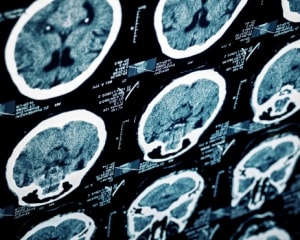 The Centers for Disease Control and Prevention tell us that traumatic brain injury contributes to about 30% of all injury deaths, and that more than 100 people die every day in the US from injuries that include TBI. The amount of new injuries every year pales in comparison to the number of people who live with some form of TBI for the rest of their lives. By some estimates, a minimum of 5 million Americans has a long-term or lifelong need for help as a result of TBI.
The Centers for Disease Control and Prevention tell us that traumatic brain injury contributes to about 30% of all injury deaths, and that more than 100 people die every day in the US from injuries that include TBI. The amount of new injuries every year pales in comparison to the number of people who live with some form of TBI for the rest of their lives. By some estimates, a minimum of 5 million Americans has a long-term or lifelong need for help as a result of TBI.
Complications of TBI
Traumatic brain injury affects every part of a victim’s life, from basic life skills to social interactions to physical and mental health. Every injury is different, but research from the American Academy of Neurology has highlighted an often-overlooked complication. A study supported by the Department of Veterans Affairs found that TBI victims are much more likely to develop stroke that those with uninjured brains.
From The American Academy of Neurology: “After adjusting for factors that can affect stroke risk, such as age, high blood pressure and high cholesterol, as well as other disorders such as heart disease and the severity of the trauma, the researchers found that people with traumatic brain injury were 30 percent more likely to develop a stroke than those with trauma with no brain injury.”
The findings place a large group of people in a high-risk category of spiraling brain injuries. Traumatic brain injuries increase the risk of a stroke, which in turn carries a risk of further brain damage, which further increases the risk of a future stroke. For TBI victims and their families, this means that knowing the risks of stroke, as well as the signs and symptoms, can be the difference between life and death.
Know the signs
When a stroke affects someone you know, time saved getting treatment means brain saved. FAST action is of the essence, and remembering that word may save your loved ones’ life. From the National Stroke Association:
Face: Ask the person to smile. Does one side of the face droop?
Arms: Ask the person to raise both arms. Does one arm drift downward?
Speech: Ask the person to repeat a simple phrase. Is their speech slurred
or strange?
Time: If you observe any of these signs, call 9-1-1 immediately.
Knowing when a TBI victim is having a stroke can be difficult, especially if their injury affected symmetrical muscle movement and speech. When stroke is involved, it is better to err on the side of caution and seek treatment if you suspect something unusual is happening. Time saved is brain saved.
If your loved one has suffered a stroke as a result of a traumatic brain injury and you were not informed about the risks or dangers, you may be entitled to compensation for medical malpractice, medical treatment and pain and suffering. The experienced Nashville traumatic brain injury attorneys at Rocky McElhaney Law Firm can evaluate your case and help get you the compensation you deserve. Call 615.246.5549, visit our offices in Nashville, Gallatin or Knoxville, or contact us today for a free consultation.
